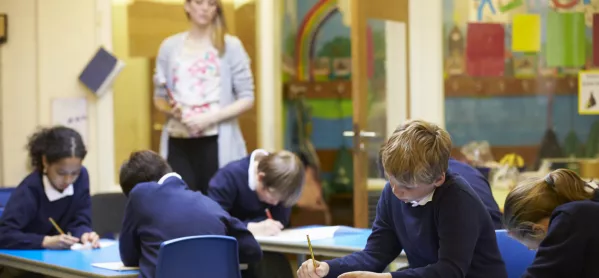Many teachers will be concerned to hear that one of the UK’s biggest education unions believes that unethical practices are “inevitable” in our “high-stakes” testing system.
It’s an issue that, by its nature, exists behind closed doors. Unlike funding pressures or teacher shortages, maladministration is subtle and secretive. It is too often an unspoken problem.
For this reason, it is really difficult to know on what scale it affects our schools. The government publishes data on maladministration, but there is no guarantee that its figures are representative of the true number of incidents - as some will inevitably go undetected.
Investigation: Just 4 staff to probe 800 Sats cheat cases
Exclusive: DfE refused to act on Sats cheating concerns
On the rise: Primary school test cheating probes up by 50%
Maladministration: 1,500 Sats results investigated for potential cheating
However, cheating at primary level - and especially at key stage 2 - does appear to be on the rise.
Recent figures from the Standards and Testing Agency (STA) show that the number of primary test cheating cases has soared by more than 50 per cent in two years.
In 2018, the STA completed 793 maladministration investigations, up from 599 in 2017 and 529 in 2016.
And a majority of the 2018 investigations (644) involved KS2 tests.
The number of schools with amendments or annulments to their KS2 results has also risen sharply - by almost 88 per cent in just two years.
In 2018, 122 schools had their KS2 results amended or annulled, up from 78 in 2017 and 65 in 2016.
However, the overall proportion of KS2 maladministration cases resulting in an annulment or amendment has remained broadly consistent - fluctuating only slightly from 15.1 per cent in 2016, to 16.9 per cent in 2017 and 15.8 per cent in 2018.
The number of results annulled because of confirmed cases of maladministration rose from 652 in 2016 to 2,292 in 2017, but fell slightly to 1,948 in 2018.
This suggests that the number of schools penalised for maladministration at KS2 is on the rise, but the actual proportion of results amended or annulled by the STA remains stable.
Provisional figures for 2019 show that around 1,500 Sats results for key stage 2 have been suppressed because of ongoing investigations into maladministration.
This compares with 2,688 at the same point last year, 723 in 2017, and 1,473 in 2016.
What is the role of the STA?
The Standards and Testing Agency (STA) is responsible for investigating any matter relating to the accuracy or correctness of any child’s results in the key stage 1 and key stage 2 national curriculum assessments - including the Sats.
Investigations are carried out according to the published Maladministration Investigation Procedures. Once a decision has been made by the STA, the school’s governing body, local authority or the Teaching Regulation Agency (TRA) may use its findings to inform any action against individuals. The STA itself does not apportion blame.
However, it does have the power to discount, amend or annul results for individual pupils, groups of pupils or the whole cohort when there is doubt over the accuracy of the judgement.
Maladministration refers to anything that risks undermining the integrity of the tests or which could lead to results that do not reflect pupils’ unaided work or their actual ability.
This can range from test papers being incorrectly opened to the over-aiding of pupils by teachers administering tests or changes being made to the pupils’ answers.





